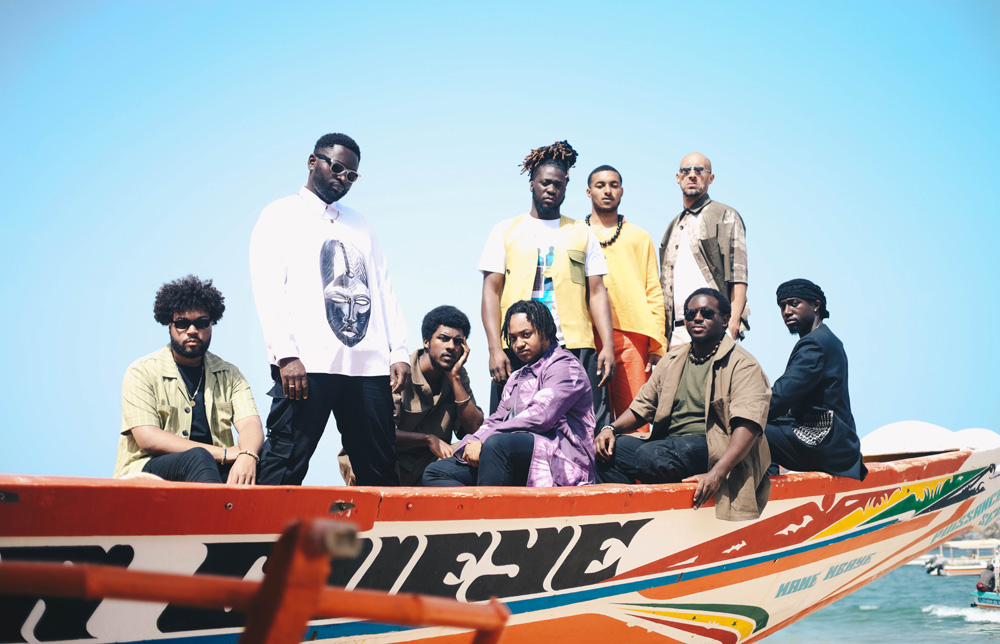The London-based Balimaya Project fuses British jazz with West African rhythms. Their second album “When The Dust Settles” emphasizes tradition in a collective sense.

Even as a schoolchild, bandleader Yahael Camara Onono loved to create rhythms with all kinds of objects. At the age of eight, he got his first djembe and, still in his teens, decided to immerse himself in the rhythms of the Mandé societies, whose members live in West Africa and form a language family. As a child of West African migrants, Yahael has his roots here, among other places. Knowing these roots precisely and consciously shaping his British and West African identities at the same time was a need he felt early on, which finds its musical expression in the Balimaya Project.
Mandé Jazz
His instrument is meant for it anyway: “Djembes, congas, batá are all leading instruments. The drums are made to stand out from the sound and indicate transitions in the music, for example,” says Yahael. And that’s exactly how his djembe sounds on “When The Dust Settles”: determined, clear and present.
Embedded in the virtuoso kora runs of Jali Bakary Konteh and in narrative wind movements that clearly bear the signature of UK jazz fusion. To realise this fusion of West African tradition and British modernity, Yahael has brought together people who otherwise hardly meet – because some only play their talking drum in church, while others jam on their trombone in London clubs. What all Balimaya Project members have in common, however, is their connection to Africa.
Experiences
In the Maninka languages, a subgroup of the Mandé language group, Balimaya stands for the “essence of the family” or the “core of togetherness”. And so the music project is also intended to provide a space for trusting exchange about the experience of living as a Black person in the Global World – but also about male vulnerability.
In the restless song “For Aziz”, arranger Yahael processes the death of his brother, in “Suley’s Ablution” the loss of his first child, whom he had young. In the past, he had simply pushed this and other key events aside, Yahael explains, “it was quite stressful. Becoming a father again changed that completely. When my first daughter was born, a switch was flipped. Today I try to be much more open with my emotions.”
A proud statement
Despite the reflective and at times melancholic moments, “When The Dust Settles” is not a sad album, but moves forward at pace and exudes hope.
“I experienced verbal but also physical racist violence in the UK, from which I still bear scars on my body today,” Yahael said. “Coming to terms with that was traumatic. But I came out of it with my head held high and it even encouraged me to better understand my roots and actively shape my identity.” Accordingly, “When The Dust Settles” is the proud statement of a new Afro-diasporic self-confidence, which incidentally creates an innovative and very touching sound.
You can also listen to this title in the impressive Dolby Atmos sound format on the Tidal streaming platform.
NMR (photo: Adeolu Osibodu)

















